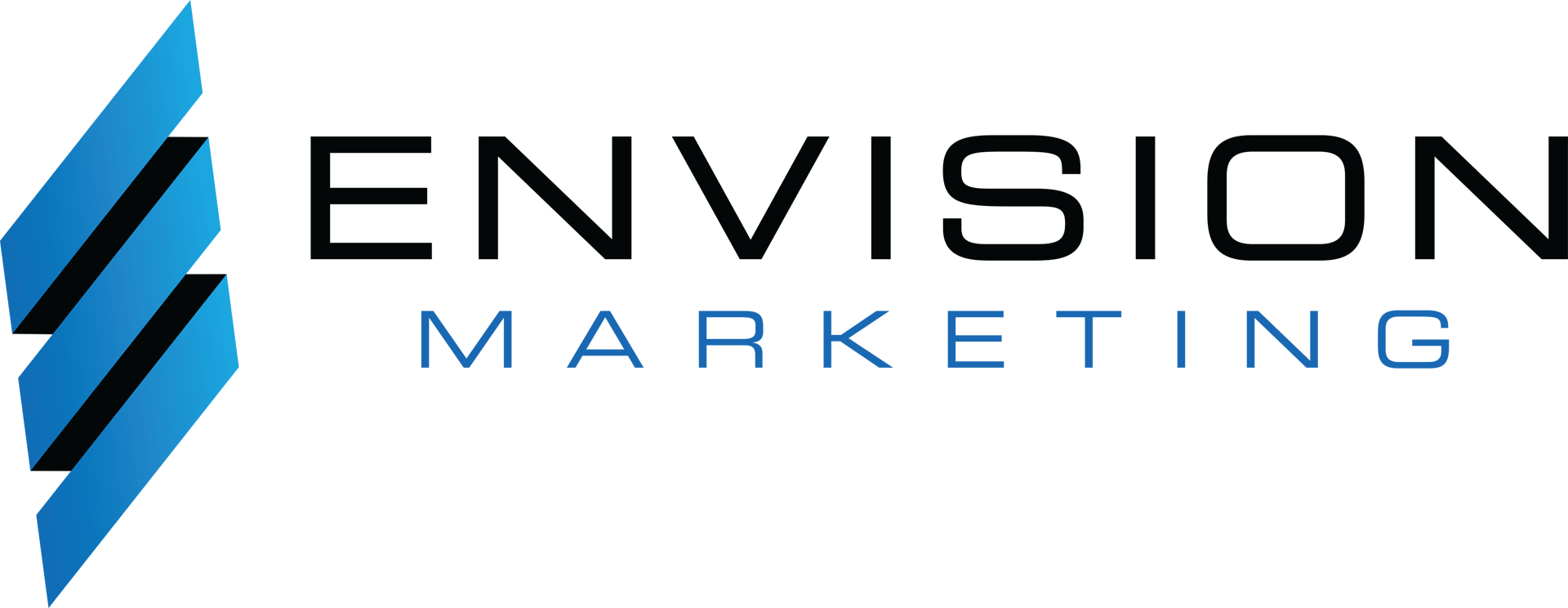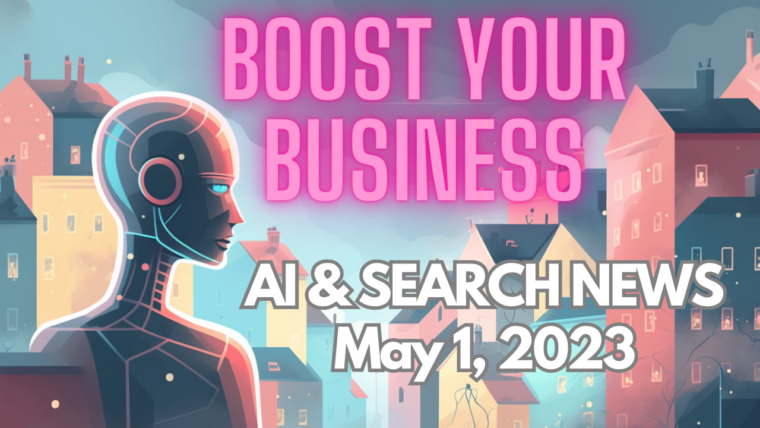Hello there, I’m TJ from Envision. Today, I want to share with you some of the most exciting developments in the world of AI and SEO that are relevant for local service businesses. This past week, we’ve seen some significant advancements, particularly from the Google I/O conference held on May 12th, 2023.
In this article, we delve into the recent developments from the Google I/O conference, discuss the integration of AI into Google Workspace, and share some exciting predictions for the future. Join us as we navigate through these transformative changes and their potential impact on the digital landscape.
ChatGPT Plugins And Web Browsing Beta Rollout For Plus Users
One of the most exciting announcements came from OpenAI. They revealed that ChatGPT plugins and web browsing capabilities are coming to all Plus users. This means that for a subscription fee of $20 a month, users will have access to these new features.
These plugins allow ChatGPT to interact with other applications, enhancing its capabilities. For example, it could create a meal plan and then add all the necessary ingredients to your Instacart shopping list. It could even make restaurant reservations for you. With 70 different plugins available, the possibilities are vast.
The web browsing feature is another game-changer. ChatGPT can now search the web and compile information for you. It’s like having a personal research assistant that can gather all the latest AI news from various websites and present it to you in a concise format.
The potential applications of these new features are limitless, and we’re excited to explore them.
Google is catching up with OpenAI/Microsoft
In the AI race, Google is not far behind. The tech giant is developing its own AI platforms that could rival OpenAI and Microsoft. The recent Google I/O conference revealed some of these developments.
Google I/O
Google I/O was a treasure trove of AI news. One of the most significant announcements was the unveiling of Palm2, the technology behind Bard, Google’s large language model.
Palm2 is smaller and more lightweight than its predecessor, making it faster and less resource-intensive. Despite its smaller size, it’s smarter and more efficient, outperforming Palm1 in several tasks.
Bard is now available for (almost) everyone
Bard, powered by Palm2, is now available for almost everyone (everyone in the US). It’s free and fast, making it a viable alternative to ChatGPT Plus for certain tasks.
Google Maps Coming to Bard
Bard is also integrating with Google Maps, which has significant implications for local service businesses. This integration will allow users to access information from Google Maps directly through Bard, potentially changing how people search for local services.
Google Lens Support in Bard
Another exciting development is the integration of Google Lens into Bard. Google Lens is an image recognition technology that allows users to search for information about objects in images. With this integration, users can take a photo of an object and ask Bard questions about it.
This could revolutionize how people search for products and services, making images and videos from our clients even more important.
Adobe Firefly now integrates with Bard
Adobe Firefly, Adobe’s new generative art tool, now integrates with Google’s Bard. This integration allows users to create or edit images directly within Bard, which could significantly change how we approach design tasks. This partnership between Adobe and Google is a strong move in the ongoing AI wars, where companies are choosing their preferred AI platforms.
Gemini: Multi-modal competitor to ChatGPT
Google is not resting on its laurels. They’re currently working on Gemini, a multi-modal AI that’s set to compete with OpenAI’s ChatGPT. While OpenAI is focusing on making their current model safer and more reliable, Google is pushing ahead with the development of Gemini. Although there’s not much information available yet, Gemini could potentially be the game-changer that puts Google ahead in the AI race.
Duet AI: Coming to Google Cloud
Google is also introducing Duet AI to Google Cloud . This AI assistant will make it easier and cheaper to set up databases and develop custom software. While we’re not currently developing software in Google Cloud, the introduction of Duet AI could make it a more attractive option for us in the future.
Google Adds AI to Workspace
Google is also integrating Duet AI into its Workspace products, starting this month. This integration will bring AI capabilities to Gmail, Google Docs, Google Sheets, and Google Slides.
In Gmail, the AI will help draft emails, potentially making the process quicker and more efficient. In Google Slides, the AI will be able to generate images from text and write speaker notes, making the creation of presentations easier. Google Sheets will be able to create templates based on prompts, while Google Docs will be able to generate and analyze text.
There’s a waitlist available for these new features, and we’re eager to start exploring them as soon as possible.
Generative search experience
One of the most significant announcements from Google is the introduction of a generative search experience. This new feature will generate AI responses to search queries, complete with products, images, and business listings. This could dramatically affect how people find our clients online, and we’re keen to ensure our clients are prominently featured in these new search results.
Perspectives (in the coming weeks)
Google is also introducing Perspectives, a new feature that will highlight opinionated content from creators in search results. This feature will make it easier for users to find a range of opinions on topics that don’t have a definitive answer. This could open up new opportunities for our clients to share their thoughts and experiences and increase their visibility in search results.
Google has stated that they will be placing a greater focus on content with unique expertise and experience in their ranking results. This highlights the importance of sharing our clients’ experiences and expertise in their respective fields.
Immersive View
Google is introducing an immersive view feature that uses AI to generate 3D models of cities. This isn’t drone footage; it’s a virtual model created entirely by AI. While currently limited to around 15 cities, it’s only a matter of time before this technology expands. This development underscores the importance of having high-quality images of our clients’ businesses, both inside and out.
Hidden Gems (Helpful Content System Update)
Google’s “hidden gems” update aims to surface more high-quality content from lesser-known sources. This could be a game-changer for our clients, as it seems Google’s AI is getting better at recognizing quality content, regardless of the number of links pointing to it. This shift towards prioritizing quality over quantity of links further emphasizes the importance of creating high-quality, expert content for our clients.
Project Tailwind
Project Tailwind is a new platform from Google that allows users to provide a large corpus of documents to the AI, which can then be queried, summarized, or used to create similar documents. This could be a game-changer for content creation, allowing us to bring in a wealth of information from various sources to generate new, high-quality content.
Google to Start Labeling AI Generated Images
Google is introducing a label for AI-generated images. While this seems to be more of a symbolic gesture at this point, it’s a clear indication of the increasing prevalence of AI in content creation. While there doesn’t seem to be a direct benefit to adding an “AI-generated” label to our images at this point, it’s something we’ll keep an eye on as the technology evolves.
Universal Translation
Google’s Universal Translation technology could revolutionize video content. This technology can automatically translate videos into other languages, even syncing the speaker’s lip movements to the translated speech. This could make our clients’ videos accessible to a much wider audience, potentially increasing their reach and visibility.
MusicLM
Finally, Google seems to be leading the race in AI-generated music with their MusicLM technology. While AI-generated music has historically been of questionable quality, Google’s latest offerings are surprisingly good. This could open up new possibilities for creating unique music for our clients’ projects.
Google Search: Topics Appearing on Desktop
Google has started displaying topic bubbles on desktop search results, a feature previously exclusive to mobile. These bubbles help users narrow down their search results to find exactly what they’re looking for. While they haven’t significantly impacted our clients’ traffic yet, as AI becomes more sophisticated, these bubbles could play a more crucial role in search results.
Breaking Boundaries of Traditional Google Business Profile Categories
Adding additional categories and services to Google Business Profiles can significantly boost visibility. A recent article from Sterling Sky Inc. highlighted the benefits of maximizing the use of categories, even those that might seem only slightly relevant. As there’s no downside to having more categories, it’s worth exploring this avenue to increase relevance for as many searches as possible.
Google Local Business Panel With Chat With Live Agent
Google Business Profiles with messaging enabled now occasionally display a “Chat with a live agent” option. This feature seems to encourage businesses to enable messaging directly through Google Business Profile, providing yet another reason to consider integrating chat functionality for our clients.
FAQ Snippets Continue to Decline
FAQ snippets are appearing less frequently in search results. As Google becomes better at understanding page content, it might not be worth adding structured data for FAQs in the future. This is something we’ll continue to monitor closely.
Meta Releases Image/Text/Audio Generator
Meta has released an impressive image, text, and audio generator. This tool can take an input in one form (image, text, or audio) and output in another. For example, you could input a picture of a dog and receive the sound of a dog barking. This technology could have exciting implications for content creation in the future.
TJ’s Predictions
As we look to the future, it’s clear that experience is quickly becoming the most important ranking factor in Google. As AI technology advances, the ability to extract our clients’ expertise and incorporate it into optimized content will be crucial.
We’ll also need to shift our focus more towards content related to the specific business and city, instead of general industry information. As AI assistants become more prevalent, they’ll need to have as much information as possible about our clients to recommend them effectively.
In conclusion, the rapid evolution of AI technology presents exciting opportunities for our clients. By staying ahead of these developments, we can continue to provide valuable services that help our clients succeed in an increasingly digital world.
Thank you for joining us on this journey through the latest developments in AI and SEO. Stay tuned for future updates and insights.



